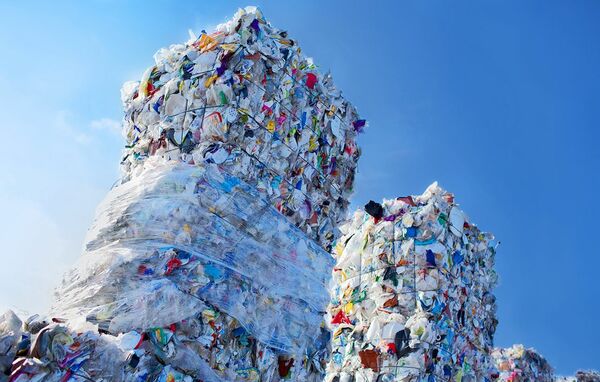The European Council, the body representing the governments of the Member States, has adopted its position on the draft Packaging and Packaging Waste Regulation (PPWR). This means that the so-called trilogue negotiations between the Council and the European Parliament can begin, at the end of which the final decision on the PPWR will be taken.
The draft provides for a series of measures to counter the rapidly growing volume of packaging waste in the Union, including binding targets for prevention. This includes the increased use of reusable packaging. From 2030, single-use packaging should only be allowed to be placed on the market if it is recyclable. Member states agreed that packaging will be considered recyclable when designed for material recycling, and when the waste packaging can be separately collected, sorted and recycled at scale (the latter condition will apply from 2035).
The Council has also adopted the targets for the use of recyclates in plastic packaging as in the European Commission's original draft. This would mean, for example, that at least ten percent of contact-sensitive packaging would have to be made from recyclates by 2030 - the Parliament had lowered this target to 7.5 percent. According to the Council's ideas, the Commission must review the implementation of the 2030 targets by 2034 and assess the feasibility of the 2040 targets.
The Council and Parliament will begin negotiations on the final form of the regulation under the Belgian Council Presidency.
Germany wants to introduce a plastic levy
Meanwhile, the German government has announced the introduction of a plastic tax. Since 2021, EU member states have been paying a levy of 80 cents per kilogram for non-recycled plastic packaging waste to the EU. The funds - which amount to around 1.4 billion euros per year for Germany - are part of the EU's own annual budget.
To date, Germany has not passed these payments on to the producers or users of plastic packaging, but has financed them from the federal budget. In the course of discussions about the 2024 budget, the German government decided to pass on the levy from 2024 – a decision that has led to intense debate.
"A plastic levy would be passed on from companies to consumers in the form of higher product prices. This means that consumers pay the levy at the checkout," criticizes Martin Engelmann, Managing Director of the Industrievereinigung Kunststoffverpackungen e.V. Instead of promoting the circular economy, the levy unilaterally burdens plastic as a packaging material and reinforces the trend towards non-recyclable or only poorly recyclable paper-plastic composite packaging.
"We will now carefully consider how this levy is designed so that it also has a steering effect," writes SPD MP Michael Thews on Linkedin. "It would be conceivable for the contribution to be reduced as a percentage of the recycled content of the packaging. That would be a sensible incentive for a more circular economy! The cost of the levy can also be reduced if Germany produces less non-recycled plastic waste." The plastics industry has both in its hands: "That's why my advice now is: Don't moan, get to work!"
Plastic recyclers under pressure
The news comes at a difficult time for plastic recyclers. "I can't remember the situation ever being this precarious," said Herbert Snell, Vice President of the bvse-Bundesverband Sekundärrohstoffe und Entsorgung e.V., in Berlin at the beginning of December. 30 percent of companies rated their economic situation as poor or unsatisfactory and did not expect it to improve any time soon. Costs for energy and personnel, for example, have risen dramatically, while sales prices for recyclates have plummeted. The background to this is ultimately a structural problem. There is a lack of sufficient incentives to use recyclates instead of new plastic, and the environmental benefits of recyclates, such as lower greenhouse gas emissions, are not reflected in the price.
"If this positive carbon footprint were taken into account, parity could be achieved between recyclates and plastics made from fossil raw materials," says Snell. New plastics would therefore have to be priced with a CO2 price: "If more recyclates and fewer new plastics are used, CO2 emissions are reduced. Those who forgo this for cost reasons must not be rewarded, but must be penalized with a significant price surcharge."
Incidentally, Der Grüne Punkt provides information on the fact that modern recyclates are suitable for use in plastic packaging, at least in the non-food sector, for example at www.systalen.de
